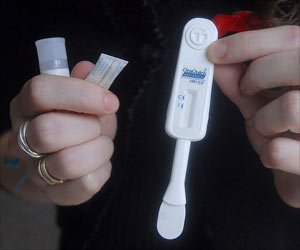Government efforts to fight HIV/AIDS in Papua are inadequate, and small, private facilities such as the Waena hostel cannot alone tackle the epidemic.

‘The approach to tackling HIV transmission is outdated, as the virus had now spread through the whole population of Papua.’





Some ended up in the hostel in Waena village after being thrown out of home when their relatives found out they had HIV, as the virus still carries a strong stigma in deeply poor Papua, which has the highest prevalence of infections in Indonesia. On World AIDS Day, activists said that government efforts to fight HIV / AIDS in Papua are inadequate, and small, private facilities such as the Waena hostel cannot alone tackle the epidemic.
"The approach to tackling HIV transmission is outdated," said Aditya Wardhana, from Indonesia AIDS Coalition, adding that official efforts focused on groups such as sex workers, but the virus had now spread through the whole population of Papua.
The human immunodeficiency virus (HIV), which can lead to AIDS, is mostly spread through unsafe sex in Papua, in particular due to the growth of prostitution in major cities. The prevalence of HIV in Papua is 2.3 percent of the population, compared to a national figure of 0.47 percent, health ministry data showed.
While the number of new HIV infections worldwide has fallen by 35 percent over the past 15 years, according to UN figures, in Papua the figure has remained stubbornly high. Latest official figures show that around 18,000 cases of HIV have been reported in Papua, but activists believe the real number is far higher.
Advertisement














